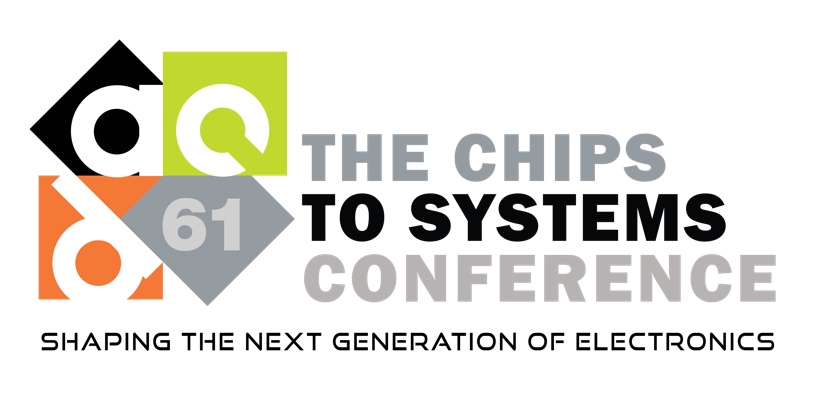Presentation
Key for Truly Up-to-date, Accurate, and Reusable EDA Library
DescriptionA DAC panel in year 1993[1] emphasized the need for design engineers to have a component library management system/platform that provides software tools for rapid generation and management of up-to-date, EDA-neutral, complete, and reusable libraries. This would save time and costs in product design. However, some questions remain unanswered until recently:
1) Should this library platform be provided by EDA tool providers, by component providers, by ODM/OEM companies, or by a third-party organization?
2) What factors enable a library platform to truly provide up-to-date, accurate, and reusable libraries?
In today' industry, different EDA tools are not compatible with each other, making it nearly impossible for a tool provider to develop a library platform that support multiple EDA formats. Component providers and semiconductor companies are only responsible for giving components to customers and supplying specification datasheets in PDF format. Product design and manufacturing companies (ODM/OEM) can only create libraries according to their own needs. Therefore, a third-party organization would be best positioned to develop a library platform that supports all EDA formats, all new components of all vendors, and meet the design for manufacturing and assembly (DFMA) requirements of all ODM and OEM companies.
More importantly, only up-to-date, accurate, and reusable libraries can truly benefit design engineers working on different design lines and help companies save time and costs in the design process. The library platform that revolutionizes the industry must have the following features:
The platform is publicly accessible, allowing users to download libraries directly anywhere anytime.
Rapidly building highly accurate libraries, that not only align with generic parts information from spec datasheets, but also incorporate built-in DFMA rules into parts. This is crucial to customers of all tiers. Almost all tier-1 OEM/ODM companies require libraries to adhere to custom DFMA rules, mid-size companies need standardized DFMA to help them avoiding manufacturing issues, and small companies seek generic parts that follow IPC standards.
Offering on-demand access to libraries of the latest components. Simply having a large database of old libraries is not enough. Engineers use the latest components in their new designs and thus need up-to-date libraries. Relying on outdated libraries means engineers must manually adjust part drawings to accommodate differences between old and new specs and varying DFMA requirements. On-demand services can solve this issue.
Essentially, leveraging AI and automation technologies to support rapid on-demand services, eliminating the traditional manual part creation process. AI digitization technologies can extract necessary information from spec datasheets. The EDA library automation engine with programmable DFMA functions can encode spec data and DFMA rules for part creations.
Establishing a standardized library format that can fully describe both component specifications and DFMA rules. The format can transfer DFMA knowledge between EDA formats and be compatible with most EDA software. Then, the mentioned programmable DFMA functions supported by this DFMA-enriched format can code DFMA rules for rapid parts creation and modification.
Reference
[1] "Panel: The Key to EDA Results: Component & Library Management", DAC 1993, Don Conrad, Tom Fribourg, Jim Gruneisen, Glynn Marlow, Romesh Wadhwani, Bob Wiederhold
1) Should this library platform be provided by EDA tool providers, by component providers, by ODM/OEM companies, or by a third-party organization?
2) What factors enable a library platform to truly provide up-to-date, accurate, and reusable libraries?
In today' industry, different EDA tools are not compatible with each other, making it nearly impossible for a tool provider to develop a library platform that support multiple EDA formats. Component providers and semiconductor companies are only responsible for giving components to customers and supplying specification datasheets in PDF format. Product design and manufacturing companies (ODM/OEM) can only create libraries according to their own needs. Therefore, a third-party organization would be best positioned to develop a library platform that supports all EDA formats, all new components of all vendors, and meet the design for manufacturing and assembly (DFMA) requirements of all ODM and OEM companies.
More importantly, only up-to-date, accurate, and reusable libraries can truly benefit design engineers working on different design lines and help companies save time and costs in the design process. The library platform that revolutionizes the industry must have the following features:
The platform is publicly accessible, allowing users to download libraries directly anywhere anytime.
Rapidly building highly accurate libraries, that not only align with generic parts information from spec datasheets, but also incorporate built-in DFMA rules into parts. This is crucial to customers of all tiers. Almost all tier-1 OEM/ODM companies require libraries to adhere to custom DFMA rules, mid-size companies need standardized DFMA to help them avoiding manufacturing issues, and small companies seek generic parts that follow IPC standards.
Offering on-demand access to libraries of the latest components. Simply having a large database of old libraries is not enough. Engineers use the latest components in their new designs and thus need up-to-date libraries. Relying on outdated libraries means engineers must manually adjust part drawings to accommodate differences between old and new specs and varying DFMA requirements. On-demand services can solve this issue.
Essentially, leveraging AI and automation technologies to support rapid on-demand services, eliminating the traditional manual part creation process. AI digitization technologies can extract necessary information from spec datasheets. The EDA library automation engine with programmable DFMA functions can encode spec data and DFMA rules for part creations.
Establishing a standardized library format that can fully describe both component specifications and DFMA rules. The format can transfer DFMA knowledge between EDA formats and be compatible with most EDA software. Then, the mentioned programmable DFMA functions supported by this DFMA-enriched format can code DFMA rules for rapid parts creation and modification.
Reference
[1] "Panel: The Key to EDA Results: Component & Library Management", DAC 1993, Don Conrad, Tom Fribourg, Jim Gruneisen, Glynn Marlow, Romesh Wadhwani, Bob Wiederhold
Event Type
Exhibitor Forum
TimeMonday, June 245:00pm - 5:30pm PDT
LocationExhibitor Forum, Level 1 Exhibit Hall


